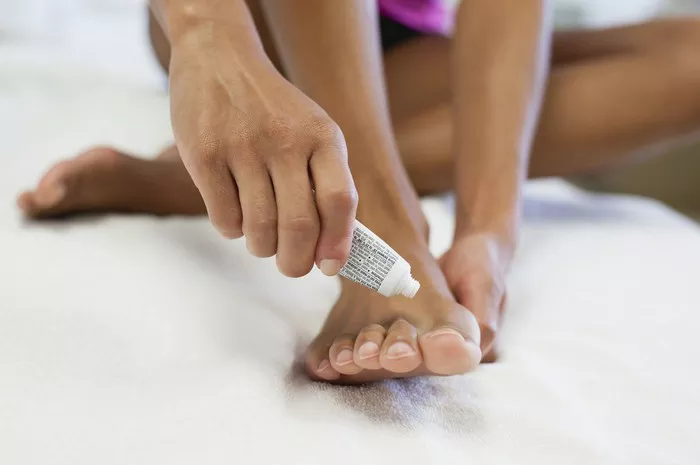Ringworm is a common fungal infection that affects the skin, hair, and nails. Despite its name, ringworm is not caused by a worm but by a group of fungi known as dermatophytes. It can cause itchy, red, and circular rashes on various parts of the body. This article will explore the best medicines for treating ringworm disease, how they work, and tips for prevention.
Understanding Ringworm
What is Ringworm?
Ringworm, medically known as tinea, can affect different body parts:
Tinea corporis: Affects the body.
Tinea pedis: Known as athlete’s foot, affects the feet.
Tinea cruris: Also known as jock itch, affects the groin area.
Tinea capitis: Affects the scalp.
Tinea unguium: Affects the nails.
Symptoms of Ringworm
Common symptoms include:
- Circular, red patches with clear skin in the center
- Itching and discomfort
- Flaky or scaly skin
- Hair loss (in cases of tinea capitis)
If you suspect you have ringworm, it’s essential to seek medical advice for proper diagnosis and treatment.
How is Ringworm Diagnosed?
A healthcare provider can diagnose ringworm through:
Visual Examination: The doctor examines the affected area.
Skin Scraping: A sample of skin may be taken to identify the fungus.
Fungal Culture: A lab test can determine the specific type of fungus causing the infection.
Best Medicines for Ringworm
1. Topical Antifungals
Topical antifungals are the first line of treatment for most cases of ringworm. They are applied directly to the affected area and are available over-the-counter (OTC) or by prescription.
Common Topical Antifungals
Clotrimazole: An effective antifungal cream that is used twice daily.
Miconazole: Similar to clotrimazole, it is applied once or twice daily.
Terbinafine: Often recommended for tinea corporis and tinea pedis, used once or twice daily.
Ketoconazole: Available as a cream or shampoo, it treats various fungal infections.
Application Instructions
- Clean the affected area with soap and water.
- Pat dry thoroughly.
- Apply a thin layer of the antifungal cream.
- Wash your hands after application to avoid spreading the infection.
2. Oral Antifungals
For more severe or widespread infections, oral antifungal medications may be necessary. These are typically prescribed by a healthcare provider.
Common Oral Antifungals
Terbinafine (Lamisil): Usually taken for 6 to 12 weeks for severe cases.
Itraconazole: Taken for 1 to 3 months, effective for tinea capitis.
Fluconazole: Often used for systemic fungal infections; the duration depends on the severity.
Side Effects of Oral Antifungals
Oral antifungals can cause side effects, including:
- Nausea
- Diarrhea
- Liver toxicity (rare but possible)
Regular monitoring by a healthcare provider is essential during treatment.
3. Home Remedies
Some individuals may seek home remedies for ringworm, although these should complement medical treatment, not replace it.
Common Home Remedies
Apple Cider Vinegar: Known for its antifungal properties, it can be applied directly to the affected area.
Tea Tree Oil: Diluted with a carrier oil, tea tree oil may help reduce the infection.
Garlic: Known for its antifungal effects, crushed garlic can be applied to the skin.
While these remedies may provide relief, scientific evidence supporting their effectiveness is limited.
Duration of Treatment
The duration of treatment varies based on the severity of the infection:
Topical treatments may take 2 to 4 weeks.
Oral medications can last from a few weeks to several months.
It’s crucial to complete the full course of treatment, even if symptoms improve, to prevent recurrence.
Prevention of Ringworm
1. Maintain Good Hygiene
Wash Hands Regularly: Especially after contact with potentially infected areas.
Keep Skin Dry: Fungi thrive in moist environments, so keep skin dry and clean.
Avoid Sharing Personal Items: Towels, clothing, and hairbrushes can spread the infection.
2. Wear Breathable Clothing
Opt for loose-fitting, breathable fabrics to reduce moisture build-up on the skin.
3. Use Antifungal Powder
Consider using antifungal powder in shoes or on sweaty areas to prevent fungal growth.
4. Treat Infected Pets
Ringworm can spread from pets to humans. If your pet shows signs of ringworm, seek veterinary treatment immediately.
When to See a Doctor
If you notice:
- Symptoms that worsen or do not improve after treatment
- A large area of infected skin
- Fever or widespread rash
Consult a healthcare provider for further evaluation and treatment.
Conclusion
Ringworm is a treatable fungal infection that can affect various parts of the body. The best medicines for ringworm include topical antifungals for mild cases and oral antifungals for more severe infections. Good hygiene and preventative measures are key to avoiding ringworm. Always consult a healthcare provider for the most effective treatment options tailored to your needs. With proper care, ringworm can be managed effectively, allowing you to return to your daily activities without discomfort.
Related topics:


























